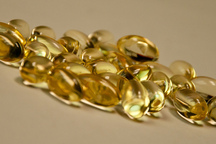
The headlines of the newspapers this week focus on the severity of the cold and flu season. This leaves many of us wondering what we can do to either prevent the flu or shorten its duration once it has struck. Of course there are the general recommendations... get plenty of sleep, wash your hands, and eat healthy foods. A lack of sleep wears down our immune system, making us more susceptible to catching what is going around - as does not eating real food. If we are loading up on sugars and non foods, we aren't getting the nutrients our immune systems need to function optimally. There are numerous supplements that are beneficial to take as a preventative measure to support the immune system - probiotics, vitamin D, omega 3's, and a good whole vitamin are the staples of many supplement programs. Probiotics are especially helpful because gut health plays a large role in immune strength. Epsom salt baths and using a neti pot can also be helpful. Managing stress is also very important in retaining health. Take Care! Shanna

I have blogged about sugar numerous times - with a focus on corn syrup and high fructose corn syrup. Most of us don't add a lot of sugar to our foods, the problem is with the amount of sugar found in most processed foods. According to Robert Lustig, MD who wrote "Sugar, The Bitter Truth", "Roughly 80 percent of all packaged foods in the United States contain added sweeteners." The problem with all of the sugar we are ingesting is two-fold. Not only does sugar give us empty calories lacking in nutrients, it can deplete our systems leading to a fatty liver and other health concerns, including obesity. When looking at labels, Dr. Lustig states that if you find any kind of sugar listed in the first three ingredients on the label, consider that food a dessert. The sugar is going to cancel out any of the health benefits that would have been in the other ingredients. If you are considering cutting down on your sugar consumption, my first recommendation would be to eliminate high fructose corn syrup, corn syrup, and corn sugar from the foods that you consume. This one change will greatly improve the quality of food that you are ingesting. Be sure to look at labels of foods that you wouldn't think would contain these sugars - even savory foods now add these sugars to the ingredient list. Small steps to health are more attainable, so this is a great item to choose for a New Year's Resolution. Have a great day ~ Shanna
Happy New Year! One of my goals for this year is to spend more time blogging on this site and doing some updates. Hopefully this resolution will last past next week! A change this year is that I am going to switch from having 10% off supplements to having tax included in supplement purchases. Initial visits will continue to be $95 and follow up visits will stay at $30. I am hoping to focus on food for many of my blogs because I am convinced that we can make the most changes in our health by the food choices that we make. I don't know about you, but coming off of the holidays, I am craving healthy foods, and I don't care if I don't see another caramel turtle until next Christmas! I am going to start next week's blog talking about sugar. This would be a great week to evaluate how much sugar that you are ingesting each day. The difficulty with this is that there is so much sugar hidden in foods under names like corn syrup, sucrose, honey, and much more. According to the January issue of the Oprah magazine, the American Heart Association recommends limiting our added sugar intake to six teaspoons daily, but we are actually getting about 22 teaspoons of sugar each day. This is pretty easy to do. A can of pop can have up to 10 teaspoons of sugar. If you are keeping track this week, each label will tell you how much sugar is in a serving of food or beverage. More on this next week... Shanna


 RSS Feed
RSS Feed